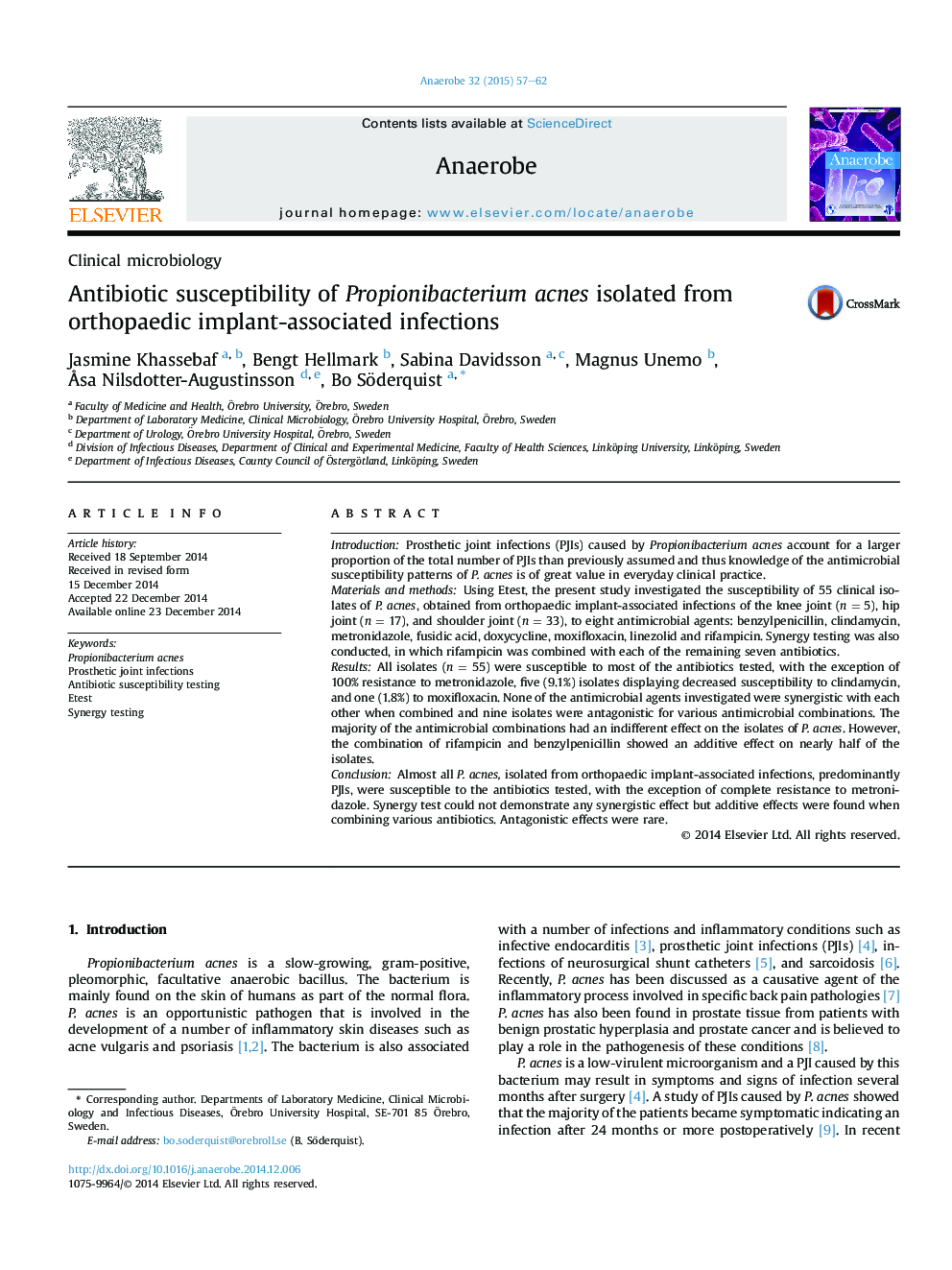| کد مقاله | کد نشریه | سال انتشار | مقاله انگلیسی | نسخه تمام متن |
|---|---|---|---|---|
| 3395094 | 1592831 | 2015 | 6 صفحه PDF | دانلود رایگان |
• Propionibacterium acnes causing prosthetic joint infections were susceptible to various antibiotics.
• Synergy test did not demonstrate any synergistic effect.
• Additive effects were found when combining rifampicin with various antibiotics.
• Antagonistic effects were rare.
IntroductionProsthetic joint infections (PJIs) caused by Propionibacterium acnes account for a larger proportion of the total number of PJIs than previously assumed and thus knowledge of the antimicrobial susceptibility patterns of P. acnes is of great value in everyday clinical practice.Materials and methodsUsing Etest, the present study investigated the susceptibility of 55 clinical isolates of P. acnes, obtained from orthopaedic implant-associated infections of the knee joint (n = 5), hip joint (n = 17), and shoulder joint (n = 33), to eight antimicrobial agents: benzylpenicillin, clindamycin, metronidazole, fusidic acid, doxycycline, moxifloxacin, linezolid and rifampicin. Synergy testing was also conducted, in which rifampicin was combined with each of the remaining seven antibiotics.ResultsAll isolates (n = 55) were susceptible to most of the antibiotics tested, with the exception of 100% resistance to metronidazole, five (9.1%) isolates displaying decreased susceptibility to clindamycin, and one (1.8%) to moxifloxacin. None of the antimicrobial agents investigated were synergistic with each other when combined and nine isolates were antagonistic for various antimicrobial combinations. The majority of the antimicrobial combinations had an indifferent effect on the isolates of P. acnes. However, the combination of rifampicin and benzylpenicillin showed an additive effect on nearly half of the isolates.ConclusionAlmost all P. acnes, isolated from orthopaedic implant-associated infections, predominantly PJIs, were susceptible to the antibiotics tested, with the exception of complete resistance to metronidazole. Synergy test could not demonstrate any synergistic effect but additive effects were found when combining various antibiotics. Antagonistic effects were rare.
Journal: Anaerobe - Volume 32, April 2015, Pages 57–62
